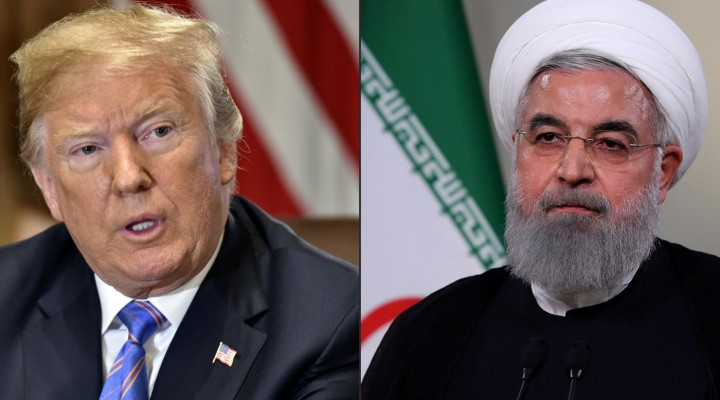Iran nuclear deal: Trump is leaving a poisoned legacy for Biden

The coming weeks could see increased tensions fuelled by US sanctions, and the possibility of strikes against Iranian assets
Historians will soon begin assessing outgoing US President Donald Trump’s legacy in foreign policy. In the meantime, Trump seems determined to use his last weeks in power to leave his own legacy in the form of poison pills to his successor, Joe Biden – particularly by complicating any chance to resume a dialogue with Iran.
Regardless of Trump’s interference, relaunching talks with Tehran and rejoining the nuclear deal signed in 2015 may prove extremely difficult. Three big obstacles loom: Washington’s Beltway, US allies in the Middle East, and the views of Biden and his staff on the terms by which a dialogue could be renewed.
Among Washington’s political and security establishment, there is widespread opposition to engage with Iran again. If the Senate remains under Republican control, such opposition may be further reinforced.
Threat of confrontation
The problem lies in a huge misunderstanding about what the 2015 deal was supposed to achieve. Many considered it a tool to curb not only Iran’s nuclear ambitions, but also its missile programme and destabilising activities in the Middle East.
Unfortunately, the nuclear deal was never explicitly intended to cover such topics; this would have required a new, comprehensive negotiation process, encompassing other “destabilising” activities and missile programmes of other regional countries, perceived as a threat by Tehran and its allies – in other words, negotiations on a political and security architecture for the whole region.
In assessing the Iranian reaction, it should be noted that Tehran has not forgotten that after the nuclear deal was first implemented, the Obama administration began lobbying and warning banks around the world against enabling commercial transactions in US dollars with Iran. From Iran’s perspective, this emptied the nuclear deal of any real value.
Sanctions relief, a fundamental pillar that pushed Tehran to sign the deal, never truly materialised. Some of the advisers who advocated these decisions under the Obama administration will likely sit again in Biden’s.
Opportunities for escalation
Yet, even before Biden’s real intentions have become clear, for Trump, Israel and their Arab partners, the temptation to create conditions that could tie the new president’s hands in relaunching talks with Iran may prove irresistible. The coming weeks could see increased tensions fuelled by reinforced US sanctions, without excluding the possibility of US and Israeli strikes against Iranian assets in the region, or even inside Iran’s borders.
The secret meeting between Israeli Prime Minister Benjamin Netanyahu, Saudi Crown Prince Mohammed bin Salman, and US Secretary of State Mike Pompeo that, according to Israeli news sources took place a few days ago in Saudi Arabia, could have been the occasion where this desperate escalation attempt may have been finally agreed and fine-tuned.
There are plenty of opportunities: accidents in Syria and Lebanon that could also be used as a rationale to target Hezbollah; further attacks by pro-Iran militias in Iraq; maritime accidents in the Gulf attributed to Iran’s Revolutionary Guards, which could allow for massive counterstrikes; new attacks on Saudi oil facilities; an escalation in Yemen; or a terrorist attack against US, Israeli or Arab interests in the region.
A strike against Iranian nuclear facilities could also be justified by the threat of its uranium-enrichment activities since the nuclear deal fell apart.
Any event that could increase tensions and make it extremely difficult for the incoming US president to justify a new policy vis-a-vis Iran will be welcomed in these circles. In such a case, major European powers may find it impossible to blame the US, having begged for so long to have anyone but Trump in the White House.
Once again, it will be up to Iran’s leadership to show the strategic patience it has widely displayed so far. But this time may be different, as next June Iran will have its own presidential election – and Iranian hawks may also find a casus belli irresistible.
https://www.middleeasteye.net/opinion/iran-nuclear-deal-trump-aims-leave-poisoned-legacy-biden
 TheAltWorld
TheAltWorld 
0 thoughts on “Iran nuclear deal: Trump is leaving a poisoned legacy for Biden”